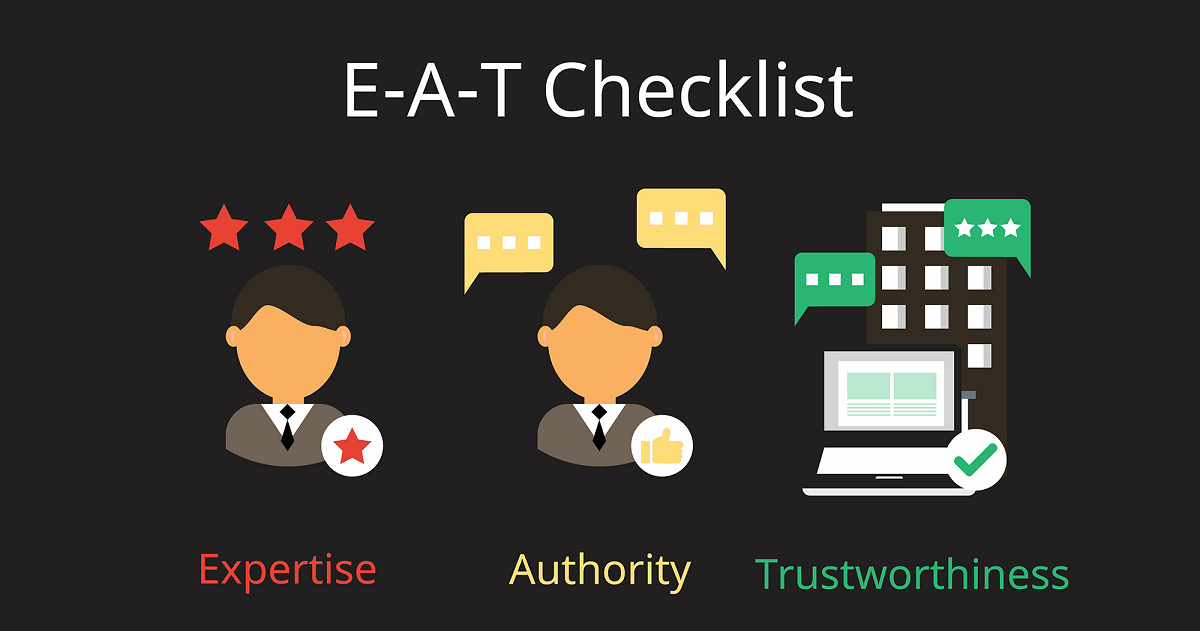BLOG
Mastering Keyword Research: Tools and Techniques for Effective SEO

In the ever-evolving landscape of search engine optimization (SEO), one aspect remains constant: the importance of keywords. At the heart of every successful SEO strategy lies thorough keyword research, which involves identifying the terms and phrases your target audience uses when searching for information, products, or services online.
Mastering keyword research is not just about finding the right keywords; it's about understanding your audience's intent, uncovering valuable insights, and strategically integrating these findings into your content and optimization efforts. This comprehensive guide will explore the essential tools and techniques to empower you to conduct adequate keyword research and elevate your SEO game.
Join us on this journey as we explore the art and science of keyword research, unlocking the tools and techniques that will help you achieve maximum visibility and success in the competitive world of online search.
Understanding Keyword Research
Understanding keyword research is essential for any successful SEO strategy. It involves identifying the specific words and phrases people use when searching for information online and optimizing your content to rank higher in search engine results pages (SERPs). By effectively conducting keyword research, you can uncover valuable insights into your target audience's interests, needs, and search behavior.
This knowledge enables you to create content that aligns with what your audience is searching for, increasing the chances of your website being discovered by potential customers. Additionally, keyword research helps you identify relevant and high-performing keywords to target, which can improve your website's visibility and drive organic traffic.
Importance Of Targeting The Right Keywords
Targeting the right keywords directly impacts the success of your digital marketing strategy. By selecting keywords that align with your audience's search intent, you can:
- Enhance Visibility: Targeting relevant keywords improves your website's visibility in search engine results, increasing the likelihood of attracting organic traffic.
- Boost Traffic Quality: Quality traffic is more likely to convert. Targeting specific keywords ensures that the traffic you receive is interested in your offerings, improving conversion rates.
- Improve User Experience: Relevant keywords lead users to content that meets their needs, enhancing their experience on your website and increasing engagement.
- Compete Effectively: By targeting niche or long-tail keywords, you can compete effectively with larger competitors who might be targeting more generic terms.
- Inform Content Strategy: Keyword research provides insights into what your audience is interested in, helping you tailor your content strategy to address their needs and preferences.
Targeting the right keywords is essential for driving qualified traffic, improving user experience, and achieving your marketing goals.
Key Metrics To Consider In Keyword Research
- Search Volume: This metric indicates how often a keyword is searched for on search engines within a specific timeframe (e.g., monthly). Higher search volumes generally indicate higher potential traffic but also higher competition.
- Competition: This metric assesses the level of competition for a keyword among advertisers bidding on it in paid search campaigns. For organic SEO, competition can also refer to the number and strength of websites already ranking for that keyword.
- Relevance: Relevance measures how closely a keyword aligns with your content, products, or services. Choosing highly relevant keywords for your niche or target audience increases the likelihood of attracting qualified traffic.
- Keyword Difficulty: This metric evaluates how challenging it is to rank for a particular keyword based on various factors, such as competition, backlink profile of top-ranking pages, and domain authority. Higher difficulty scores indicate stricter competition.
- Click-Through Rate (CTR): CTR represents the percentage of users who click on your website's link in search results after searching for a specific keyword. It can indicate the attractiveness and relevance of your content to searchers.
- Cost-Per-Click (CPC): For paid search campaigns, CPC indicates the average cost per click for a keyword in advertising campaigns. It can give insights into the competitiveness and potential ROI of targeting that keyword in paid campaigns.
- Trends: Analyzing keyword trends over time can reveal seasonal variations, emerging topics, or declining interests, helping you adjust your content strategy accordingly.
Consider these metrics to decide which keywords to target for your SEO and content strategy.
Tools For Keyword Research
- Google Keyword Planner: This free tool by Google provides keyword ideas and traffic estimates based on historical data.
- SEMrush: A comprehensive SEO tool that offers keyword research, competitive analysis, and more. It provides data on keyword volume, competition, and trends.
- Ahrefs: Known for its backlink analysis, Ahrefs also offers a powerful keyword research tool that provides keyword ideas, search volume, keyword difficulty, and more.
- Moz Keyword Explorer: Moz's tool offers keyword suggestions, search volume, difficulty scores, and SERP analysis to help you choose the best keywords for your content.
- KeywordTool.io: This tool provides keyword ideas from Google Autocomplete, which can help find long-tail keywords.
- Ubersuggest: Neil Patel's tool offers keyword suggestions, search volume, and competitive data, making it a popular choice for keyword research.
- AnswerThePublic: This tool generates keyword ideas in a visual format based on questions, prepositions, and comparisons related to your seed keyword.
- SpyFu: Known for competitor analysis, SpyFu also offers keyword research tools to identify profitable keywords and analyze competitor strategies.
These tools can help you discover relevant keywords, analyze their competitiveness, and plan your content strategy effectively.
Techniques For Effective Keyword Research
- Understand Your Audience: Start by understanding your target audience's needs, preferences, and search behavior. This will help you identify the language and terms they use when searching for products or information related to your industry.
- Use Keyword Research Tools: Utilize keyword research tools like Google Keyword Planner, SEMrush, Ahrefs, or Moz Keyword Explorer to discover relevant keywords. These tools provide insights into search volume, competition, and related keywords that can guide your research.
- Long-Tail vs. Short-Tail Keywords: Consider using a mix of long-tail and short-tail keywords. Long-tail keywords are more specific and have lower competition, making them valuable for targeting niche audiences. Short-tail keywords are broader and more competitive but can attract higher search volumes.
- Competitor Analysis: Analyze your competitors' websites to see what keywords they are targeting. This can provide insights into gaps in your keyword strategy and opportunities to target unique keywords.
- Keyword Modifiers and Synonyms: Incorporate keyword modifiers (e.g., "best," "top," "how to") and synonyms to expand your keyword list. This can help you capture keyword variations and reach a broader audience.
- User Intent: Consider the intent behind the keywords you target. Are users looking for information, products, or solutions? Align your content with the intent behind the keywords to provide relevant and valuable content to your audience.
- Seasonal and Trending Keywords: Keep an eye on seasonal and trending keywords related to your industry. These keywords can provide opportunities for timely content that resonates with current trends and events.
- Organize and Prioritize Keywords: Organize your keyword list based on relevance, search volume, and competition. Prioritize keywords that align closely with your content strategy and have the potential to drive meaningful traffic.
- Test and Refine: Continuously refine your keyword strategy based on performance metrics. Monitor the impact of your chosen keywords on your website traffic, rankings, and conversions, and adjust your strategy accordingly.
By incorporating these techniques into your keyword research process, you can identify the most relevant and effective keywords to optimize your content for search engines and attract your target audience.
How To Conduct Competitor Analysis For Keyword Research
- Identify Your Competitors: Start by identifying your main competitors in the industry or niche you're targeting. Look for businesses that offer similar products, services, or content to your own.
- Compile a List of Keywords: Use tools like SEMrush, Ahrefs, or Google Keyword Planner to identify the keywords your competitors are ranking for. Pay attention to both their organic and paid keywords.
- Analyze Keyword Relevance: Review the keywords to see if they are relevant to your business and audience. Focus on keywords that are closely related to your offerings and have a good search volume.
- Assess Keyword Difficulty: Evaluate the difficulty of ranking for each keyword by looking at metrics like keyword difficulty score (KD), competition level, and search volume. Aim for keywords with a balance of decent search volume and manageable competition.
- Look at SERP Features: Analyze the search engine results pages (SERPs) for your target keywords to see if there are any featured snippets, images, videos, or other rich results. This can give you insights into the type of content Google favors for those keywords.
- Study Competitor Content: Review the content your competitors are ranking for those keywords. Look for gaps or opportunities where you can create better, more comprehensive content.
- Monitor Changes: Keep track of any changes in your competitors' keyword rankings and content strategies over time. This can help you adapt your own strategy accordingly.
- Refine Your Strategy: Use the insights gained from your competitor analysis to refine your keyword research strategy. Focus on targeting keywords that offer the best opportunities for your business based on competition, relevance, and search volume.
Best Practices For Keyword Research
- Understand Your Audience: Know your target audience to find keywords that resonate.
- Focus on Relevance: Choose keywords relevant to your content, products, or services.
- Use a Mix of Short-Tail and Long-Tail Keywords: Target broad and specific keywords.
- Consider Search Volume and Competition: Search keywords with decent search volume and manageable competition.
- Use Keyword Research Tools: Utilize tools like Google Keyword Planner, SEMrush, Ahrefs, or Moz Keyword Explorer.
- Explore Keyword Variations: To broaden your keyword list, find synonyms and related terms.
- Consider User Intent: Align your content with different keyword intents (e.g., informational, navigational, transactional).
- Monitor and Update Your Keyword Strategy: Regularly update your strategy based on search trends and user behavior changes.
- Integrate Keywords Naturally: Include keywords naturally in your content without overdoing it.
- Track and Measure Results: Use tools like Google Analytics to monitor keyword performance and make adjustments.
Conclusion
Mastering keyword research is crucial for effective SEO. Using tools like Google Keyword Planner, SEMrush, and Ahrefs helps uncover valuable keywords aligned with your content and business goals.
Techniques like long-tail keyword optimization, competitor analysis, and user intent mapping enhance your strategy. Analyzing competitors' keywords reveals optimization opportunities. Aligning keywords with user intent ensures engaging content. Continuously refining your strategy based on data drives sustainable organic traffic.











